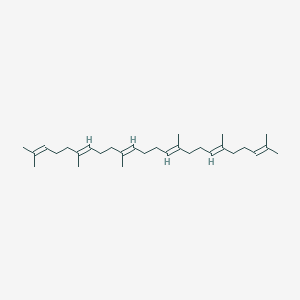-
Categories
-
Pharmaceutical Intermediates
-
Active Pharmaceutical Ingredients
-
Food Additives
- Industrial Coatings
- Agrochemicals
- Dyes and Pigments
- Surfactant
- Flavors and Fragrances
- Chemical Reagents
- Catalyst and Auxiliary
- Natural Products
- Inorganic Chemistry
-
Organic Chemistry
-
Biochemical Engineering
- Analytical Chemistry
- Cosmetic Ingredient
-
Pharmaceutical Intermediates
Promotion
ECHEMI Mall
Wholesale
Weekly Price
Exhibition
News
-
Trade Service
University of Birmingham, in collaboration with the University of Amsterdam, have found a possible explanation for mental retardation, which often comes with disease.
An estimated 12 million British citizens suffer from chronic diseases, many of whom report severe mental fatigue, which they call "slow movement" or "brain ambiguousness." This condition is usually as debilitating as the disease itself.
A team at the university's Center for Human Brain Health investigated the link between this mental fog and inflammation, the body's response to disease. In a study published in the journal Neuroimaging, they showed that inflammation appears to have a particularly negative effect on the brain's readiness to reach and remain alert.
Dr. Ali Mazahri and Professor Jane Raymond of the University's Center for Human Brain Health are senior authors of the study. "Scientists have long questioned the link between inflammation and cognition, but it's hard to figure out why and what the outcome is," Dr. Mazahri said. For example, people with a disease or who are overweight may complain of cognitive impairment, but it's hard to say whether this is due to inflammation caused by these diseases or other causes. Our
has identified a specific key process in the brain that is significantly affected when inflammation occurs. The
study focused on areas of the brain responsible for visual attention. A team of 20 young male volunteers participated in and received the typhoid salmonella vaccine, which causes temporary inflammation but has few other side effects. A few hours after the injection, their cognitive responses to simple images are tested on a computer screen so their ability to control attention can be measured. When they take attention tests, they measure brain activity.On different days, before and after, they received a water injection (placebo) and did the same attention test. On each test day, they didn't know what kind of injection they had received. Their inflammatory status is measured by analyzing the blood collected daily.
The tests used in the study assessed three separate attention processes, each involving different parts of the brain. These processes are: "alerts," including reaching and maintaining alert status, "targeting," including selecting and prioriting useful sensory information, and "executing controls" to address issues that require attention when available information conflicts.
showed that inflammation particularly affected brain activity associated with staying alert, while other attention processes appeared to be unaffected by inflammation.“ These results make it very clear that a very specific part of the brain network is affected by inflammation," Dr. Mazahri said. "This explains the 'brain fog'. Professor Raymond said: "This finding is an important step forward in understanding the link between physical, cognitive and mental health, and tells us that even the slightest disease reduces alertness. Dr
, lead author of the study, concluded in her doctoral thesis: "A better understanding of the relationship between inflammation and brain function will help us study other ways to treat these diseases." For example, further research may suggest that patients with chronic inflammation, such as obesity, kidney disease, or Alzheimer's disease, can benefit from taking anti-inflammatory drugs to help maintain or improve cognitive function. In
, subtle changes in brain function may be used as an early sign of cognitive deterioration in patients with inflammatory diseases.
team's next step will be to test the effects of inflammation on other functional areas of the brain, such as memory. (cyy123.com)







